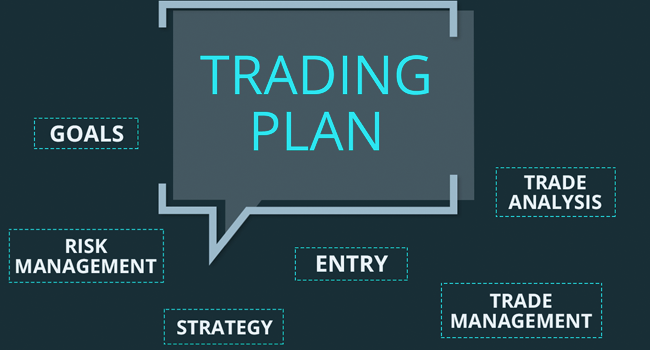Forex Trading Taxation Understanding Your Tax Liabilities
Forex trading, also known as foreign exchange trading, involves the buying and selling currencies on the global market. With the potential for significant profits, forex traders must understand their tax liabilities. Tax regulations may vary depending on your country of residence, so it is essential to consult with a tax professional or authority in your jurisdiction. This article will provide a general overview of forex trading taxation to help you better understand your tax obligations.
Tax Classification: Investor or Trader
The first step in understanding forex trading taxation is determining whether you are classified as an investor or a trader. The classification can significantly impact how your trading income is taxed.
1. Investor:
Your profits are typically classified as capital gains if you engage in forex trading as an occasional investment activity. Capital gains are subject to different tax rates and rules than ordinary income. The frequency of your trades, the length of time you hold positions, and the overall intention behind your trading activities are factors that tax authorities consider when determining whether you qualify as an investor.
2. Trader:
If you actively trade forex as a profession or a significant income-generating activity, you will likely be classified as a trader. Traders are subject to different tax regulations compared to investors. Trading income for traders is usually treated as ordinary income and is subject to regular income tax rates, similar to other self-employed individuals.
Taxable Events and Reporting
Regardless of whether you are classified as an investor or a trader, there are specific taxable events that you should be aware of when it comes to forex trading.
1. Profitable Trades:
When you profit from a forex trade, your earnings are generally considered taxable. The tax rate applied to these profits depends on your tax classification (investor or trader) and the applicable tax laws in your country.
2. Losses:
Forex trading involves risks, and losses are expected. The good news is that you can offset your trading losses against your profits. This is a capital or business loss, depending on your tax classification. These losses can be used to reduce your taxable income, potentially resulting in a lower tax liability.
3. Dividends and Interest:
Some forex trades may involve earning dividends or interest. These additional earnings are also subject to taxation and should be reported accordingly. Depending on your country’s tax laws, dividend and interest income may be taxed at different rates.
4. Withdrawals and Deposits:
When you withdraw funds from your Forex trading account or make deposits, these transactions do not typically have direct tax implications. However, it is essential to maintain accurate records of these transactions for reporting purposes and to establish a clear audit trail.
Record Keeping and Documentation
It is essential to maintain detailed records and documentation to ensure accurate tax reporting and substantiate your trading activities. Here are some vital records you should keep:
1. Trade History:
Maintain a comprehensive record of all your trades, including the date, currency pair, transaction size, opening and closing prices, and profit or loss.
2. Account Statements:
Keep copies of your account statements, which provide an overview of your trading activities, including deposits, withdrawals, and the overall account balance.
3. Bank Statements:
If you transfer funds between your Forex trading account and bank account, retain copies of the corresponding bank statements to support these transactions.
4. Trading Expenses:
If you incur any expenses related to your forex trading activities, such as trading software subscriptions or training courses, keep receipts and invoices for potential tax deductions.
Consulting a Tax Professional
Tax regulations can be complex and vary from country to country, so it is highly recommended to consult with a tax professional knowledgeable in forex trading taxation and familiar with the specific tax laws in your jurisdiction. A tax professional can provide personalized guidance based on your circumstances and help ensure you comply with all applicable tax regulations.
Here are some ways a tax professional can assist you:
1. Tax Planning:
A tax professional can help you develop a tax strategy to minimize your tax liabilities legally. They can advise you on the most advantageous tax treatment based on your classification as an investor or trader and help you understand potential deductions and credits you may be eligible for.
2. Compliance:
Compliance with tax regulations is crucial to avoid penalties and legal issues. A tax professional can help you understand the reporting requirements and deadlines for filing your tax returns accurately. They can also assist you in completing the necessary tax forms and schedules related to your forex trading activities.
3. International Tax Considerations:
If you engage in forex trading across different countries or have international tax obligations, the tax implications can become even more complex. A tax professional with expertise in international tax matters can guide you through the intricacies of reporting foreign income, claiming foreign tax credits, and navigating potential double taxation issues.
4. Audit Support:
In the event of a tax audit or inquiry from tax authorities, having a tax professional by your side can provide valuable support. They can help you gather the necessary documentation, represent you during the audit process, and protect your rights.
5. Updates on Tax Laws:
Tax laws are subject to change, and staying informed about any updates that may affect your forex trading taxation is essential. A tax professional can keep you updated with relevant tax law changes and advise you on any necessary adjustments to your tax strategy.
Tax Deductions:
Depending on your jurisdiction, there may be certain tax deductions or expenses that you can claim as a forex trader. These deductions can offset your taxable income and reduce your overall tax liability. Standard deductions may include trading-related expenses such as platform fees, data subscriptions, internet costs, and professional services fees (e.g., tax preparation fees or fees paid to financial advisors).
Tax Treaties:
If you engage in forex trading across different countries, you must be aware of any existing tax treaties between those countries. Tax treaties are agreements designed to prevent double taxation and provide rules for determining which country has the right to tax specific types of income. Understanding the provisions of tax treaties can help you optimize your tax situation when trading internationally.
Estimated Tax Payments:
Depending on your jurisdiction and the income you generate from forex trading, you may be required to make estimated tax payments throughout the year. Estimated tax payments are periodic payments made in advance based on your expected tax liability. Failing to make these payments or underpaying your taxes can result in penalties and interest charges. Consult with a tax professional to determine if you need to make estimated tax payments and calculate the appropriate amount.
Tax Reporting Tools and Software:
Managing tax obligations as a forex trader can be complex, especially if you have a high volume of trades. Consider utilizing specialized tax reporting tools or software designed for forex traders. These tools can help you generate accurate tax reports, calculate capital gains or losses, and keep track of your trading activities more efficiently. Additionally, they may assist in developing the necessary tax forms for filing your returns.
Tax Advantages of Incorporation:
In some jurisdictions, incorporating a trading business may provide certain tax advantages. By forming a legal entity such as a corporation or a limited liability company (LLC), you may be able to take advantage of specific tax deductions and benefits not available to individual traders. However, the decision to incorporate should be made in consultation with a tax professional, considering your particular circumstances and the tax laws in your jurisdiction.
It is important to note that tax laws and regulations can change over time, so staying informed about any updates and seeking professional advice to ensure compliance with the most current requirements is essential.
1. Different Tax Treatment for Different Financial Instruments:
Forex trading may involve various financial instruments such as spot contracts, futures, options, or contracts for difference (CFDs). Understanding that different tax rules may apply to each device is crucial. For example, the tax treatment of forex spot trading may differ from that of forex futures trading. Consult with a tax professional to determine the tax implications for each instrument you trade.
2. Taxation of Overnight Positions:
Some forex traders hold positions overnight, which can result in rollover interest or swap charges. These charges are typically considered interest income or expenses and may have specific tax implications. The tax treatment of overnight positions may vary depending on your tax jurisdiction. Consult with a tax professional to understand how these charges are treated for tax purposes in your specific situation.
3. Tax Reporting Frequency:
Tax reporting requirements for forex trading may vary depending on your jurisdiction. Some countries require traders to report their forex trading income and expenses annually, while others may have more frequent reporting obligations. Understanding the reporting frequency and deadlines applicable to your jurisdiction is essential to ensure timely and accurate tax compliance.
4. Tax Loss Carryforwards:
If you incur substantial trading losses in a given tax year, you can carry those losses to future years to offset future trading profits. This provision allows you to reduce your taxable income in subsequent years. The specific rules for loss carryforwards may vary, so consult a tax professional to understand how to utilize this provision.
5. Home Office Deductions:
If you operate your forex trading activities from a dedicated home office, you may be eligible for certain deductions related to your home office expenses. These deductions can include a portion of your rent or mortgage interest, utilities, and home office equipment. Remember that the rules for claiming home office deductions can be complex, so it is advisable to consult with a tax professional to ensure compliance.
6. Tax Reporting of Foreign Accounts:
You may have additional reporting requirements if you have offshore forex trading accounts or foreign bank accounts. Many countries have implemented measures to combat tax evasion and require taxpayers to disclose their foreign financial statements. Familiarize yourself with the reporting obligations related to foreign accounts and consult with a tax professional to ensure compliance with the necessary reporting requirements.
In conclusion, understanding your tax liabilities as a forex trader is vital for compliance and effective tax planning. By correctly classifying yourself as an investor or trader, identifying taxable events, maintaining accurate records, and seeking guidance from a tax professional, you can navigate the complexities of forex trading taxation and ensure you meet your tax obligations efficiently.
Certainly! Here are some additional points to consider when it comes to forex trading taxation:


